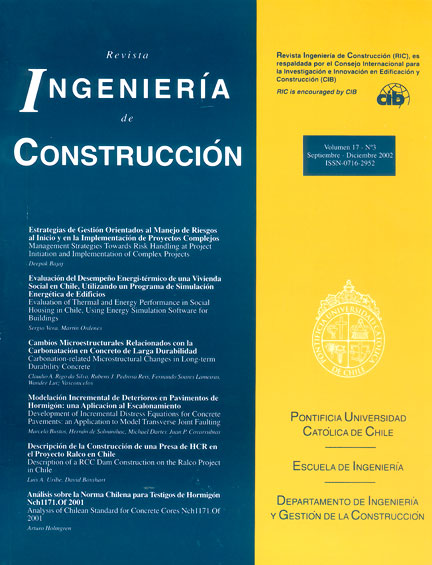Thermal and energy performance evaluation of a social housing in chile, using a building energy simulation software.
Keywords:
Thermal loads, thermal comfort, building energy simulation software, thermal insulation, passive solar heatingAbstract
A fundamental objective to design a habitable space is to assure the occupants thermal comfort, considering an energy use compatible with the activities developed in this space. The social housing does not fulfill this objective in Chile, due to: (1) Housing design does not consider this objective; (2) a high percentage of housing has a reduced area (smaller than 50 m2 ) with a high rate of occupation; (3) thermal envelope (walls, slabs on grade, ceiling and windows) has low thermal insulation capacity. (4) Chilean Building Code does not demand requirements of envelope thermal insulation, except for ceiling (since 2000). This produces a reduction of users’ life quality and an inefficient use of energy resources in conditioning housing. The objective of this research was to evaluate the effect on heating and refrigeration loads of several thermal control passive strategies, such as thermal insulation, windows orientation and size, and passive solar heating, in order to establish recommendations for the design of social housing in Santiago, Concepción and Punta Arenas (heating and/or cooling climates). PowerDOE, a building energy simulation software was used. The main results show important heating and refrigeration loads for the housing without thermal control strategies (between 111 and 370 kWh/año·m2 for heating and 76 kWh/año·m2 for refrigeration). Therefore, thermal comfort conditions are not achieved. On the other hand, the application of integral thermal control strategies produces important reductions of thermal loads, above to 45 kWh/año·m2 (40%) in Santiago, and 90 kWh/año·m2 (24%) in Punta Arenas.


